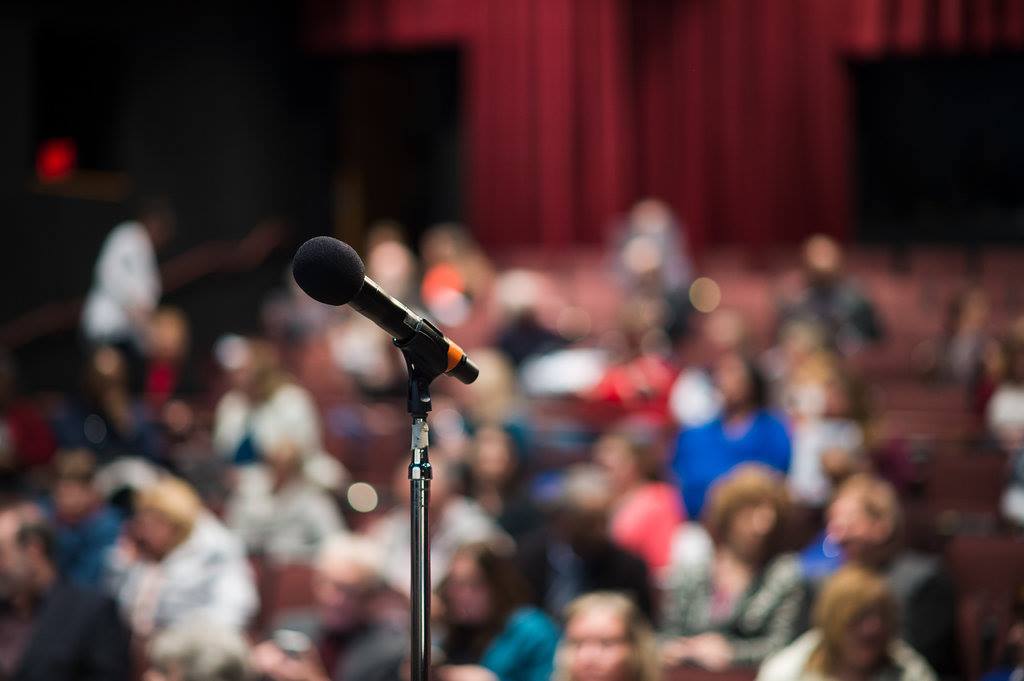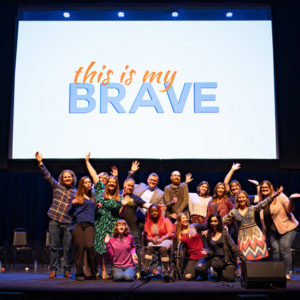Black Lives Matter… The Perspective of One Black Woman
Anger, disbelief, sadness, and so many other emotions seemed to be on replay as stories of George Floyd, Breonna Taylor, Ahmaud Arbery, and Christian Cooper dominated the news. Words, images, and emotions still bombard my brain to the point that I want to shut down. I have to remind myself to take step back, periodically turn off the television and social media, and make time for self-care. I then determine what I can do to change my corner of the world.
Because of my work, I am unable to protest without risk of spreading COVID-19 to the clients with whom I work. Instead, I stay connected with Mental Health America of Central Carolinas and Equality NC for small-scale volunteer opportunities. I share news with my family and friends. News about the protests. News about positive political action. News from conservative media. Different perspectives because they all make up the spectrum of views that are required to enact change. Every day, as a therapist, I am entrusted with people’s stories and am therefore constantly reminded that everybody has a story that contributes to who they are. We do not always have to understand or agree with it, but we should recognize its importance to their journey.
I believe that we are at a watershed moment in our nation’s evolving history about racism and race matters. While Black Americans have always acknowledged these chapters, other Americans, particularly many White Americans are only now willing to read the whole book. Racism has impacted the stories of all Americans. As Black Americans have suffered great social and economic inequities, White Americans have missed out on more diverse lives – experiences with Black friend groups, living in mixed communities, more diverse workplaces, and just a broader worldview.
As I think about the story of Black America, I cannot help but feel sorrow, anger, and frustration. The sorrow relates to something called intergenerational trauma of which historical trauma is a subtype. We today are impacted by the brutality that was inflicted on our ancestors. It is not an excuse, it’s a reality. During his eulogy for George Floyd in Houston, Rev. Al Sharpton spoke about how in the simple act of signing his name he was daily reminded of the enslavement of his ancestors. I am reminded in my father’s Ancestry.com results of the ambiguity of most Black Americans’ genealogical searches. I think about the recent anniversary of the Tulsa Race Riot of 1921 and the intentional revisionist history that erased and then diminished that story from Oklahoma history for decades. The anger and frustration come from the current challenges of the Black American story. Top of mind is the matter of life and death and our criminal justice system. Then I think of economics and matters like pay disparities. While we talk about women being paid 80 cents to every dollar men make, that is not true for Black women who only make 66 cents, as of 2018 (1). In matters of education, opportunities are certainly not equal and the HBCU institutions that Blacks created to serve their communities are at risk, particularly in this COVID-19 environment.
With respect to those matters of life and death, we have been hearing a lot lately about ‘the talk’. In case you are not familiar, ‘the talk’ refers to a conversation, often a series of conversations, that parents have with their Black boys and young men about how to conduct themselves everywhere to lower their risk of death. Unfortunately, it does not always make a difference. There is a powerful TikTok video of a young man reciting his mother’s rules currently. The reality, though, is that there are lots of ‘talks’. Black girls and young women get them, too. Our talk is even nuanced by the fact that we get some ‘girl talk’, too. Intersectionality is a topic for another day but one that is important for all of us to consider. Black lives matter and within that how do we ensure that Black women lives, Black gay lives, Black lesbian lives, and Black trans lives are included? There is one more talk, though, that some of us don’t receive and perhaps could use.
For those of us living with mental health challenges, especially those of color, many of us must muddle through alone before finally receiving the right help. What if we receive a talk about mental wellness along with that talk about living as a Black person in the US? The fact is there exists a link between the stress of being Black in the US and mental health. Black American adults “are 20% more likely to report serious psychological distress” than White American adults (2). We are also more likely to meet the diagnostic criteria for post-traumatic stress disorder (PTSD). People do not realize that there is stress even in the repetitive, vicarious exposure to the murders of so many Black Americans due to police misconduct. Though I may not personally know Sandra Bland, Atatiana Jefferson, Trayvon Martin, Walter Scott, Tamir Rice, Michael Brown, Alton Sterling, Eric Garner, Philando Castile, Pamela Turner, Freddie Gray, or the many other names discussed on the evening news, the cumulative impact of their stories and their deaths takes a mental, physical, and spiritual toll.
The personal instances of microaggressions, racist comments, and other incidents leave even heavier marks though sometimes they are equally as hidden. The infuriating thing about racism is I am accustomed to its presence. As a Southerner in particular, I have always known about it listening to stories about Jim Crow laws because they were an inevitable backdrop to many stories from my family’s past. Post-Jim Crow, continued racist behaviors shaped laws that resulted in the story that led to my parents’ marriage and my birth. Due to racist admissions standards in Southern graduate schools, my parents both attended Washington State University in Pullman, WA. Fast forward many years and I had my share of ‘talks’ learning various rules encompassing behaviors in stores, where not to go, how to drive, etc.
I was blessed. My first remembered exposure to racism is not one that happened to me but my twin brother, a second-grade teacher who treated him very poorly. That is not to say I have not had my own experiences. One of the most painful was being terrified in South America when neo-Nazi guys “happened to” appear outside a restaurant I was eating in with White colleagues who did not understand my reaction. In reflecting recently though, my life has been shaped much more by microaggressions, the more subtle yet equally offensive slights and actions that remind me that I am Black. The ones that White people sometimes question and wonder about whether Blacks are being overly sensitive but other Black people understand. When I’ve been called someone else’s name. When I’ve been followed around the store. When I’ve been followed in my car by police officers for no reason at all. When my school or work product has been judged inferior or questioned. When the cashier or clerk wonders how I can afford my purchase.
I recognize that I have been truly fortunate. I have never been called the ‘n word’. I was blessed to go to great public schools. My parents are both professors and I grew up middle class in the fourth largest city in the country. I graduated from one of the best universities in the world. I have traveled internationally and have had other amazing work and leisure opportunities. And still, my life is shaped by racism. I make housing decisions based on my race and how I might be received by my neighbors. I make the decision, as recently as January 2020, to not drive through Alabama or Mississippi at night for fear of my personal safety. I am careful when I drive at night where I currently live because I do not wish to get pulled over.
And these are just the decisions I can consciously think of as I write this. I know race is simply a filter that has melted on the lenses of how I see the world. I was not born this way. It is the preposterous, distorted system that we the United States of America have perpetuated and the way that I must successfully survive and attempt to thrive in it. And this existence gets to be stressful at times. If my Black relatively privileged life, even with mental illness, is stressful, I can only imagine what my brothers and sisters in economic and other crises must feel.
Unfortunately, because of stigma and access to care, too many Black Americans do not seek help when the mental stress becomes too much and/or underlying mental health issues surface. Compared to 73% of White American adults who receive care for their major depressive episodes, only 54% of Black Americans adults do (2). And all of this impacts our youth as well. In 2017, 41.5% of White youth ages 12-17 were treated for a major depressive episode compared to only a third of impacted Black teenagers who received treatment (3). Culturally competent care is certainly a factor, but stigma certainly needs to be addressed.
July is Minority Mental Health Awareness Month, a designation since 2008 to highlight the unique challenges faced by communities of color with respect to mental health. It is a great time to learn more about mental health and how you can be a support to yourself, your family, and your community. Take a Mental Health First Aid or a QPR suicide prevention training class. I can personally recommend both as great resources that educate communities to be active supporters of mental wellness.
In closing, I am forever changed by recent events. I am excited and energized! I hope to volunteer more and continue my passion work in mental health education and storytelling. And, I know that during all of this, I am vulnerable in my mental health. Self-care is important – I am being particularly vigilant about my routines – and it’s working. I look forward to meeting some of you as part of this collective “we.” The best part of the last two weeks is seeing familiar cream, caramel, chocolate, and cocoa faces joined by allies from all races, ethnicities, and nationalities to recognize that BLACK LIVES MATTER!

About the Author
Jonora K. Jones (TIMB Houston 2019) has found storytelling to be a great way to connect with others and to put a familiar face to mental illness, a face she wished she had seen as an undergraduate at MIT or during her 17 years in corporate America. A passion for mental health education and advocacy, prompted by a providential downsizing, led Jonora to a career as a therapist. In her spare time, Jonora loves reading, volunteering, and international travel, where she can practice her moderate French skills.
References:
(1) Sonam Sheth, Shayanne Gal, and Madison Hoff. “7 charts that show the glaring gap between men’s and women’s salaries in the US” Business Insider, 31 March 2020, www.businessinsider.com/gender-wage-pay-gap-charts-2017-3#the-gender-wage-gap-varies-
widely-depending-on-the-state-1.
(2) Mental Health America. “Black & African American Communities and Mental Health”, n.d., www.mhanational.org/issues/black-african-american-communities-and-mental-health.
(3) US Dept of Health & Human Services Office of Minority Health. “Minority Mental Health Awareness Month – July”, n.d., https://minorityhealth.hhs.gov/omh/content.aspx?ID=9447&lvl=2&lvlid=12.

